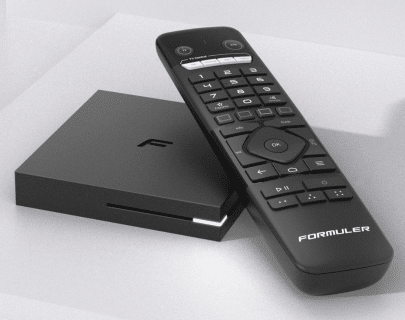Everything You Need to Know About : IPTV Box
Everything You Need to Know About IPTV Box
Introduction
In the digital age, the way we consume television and media content has dramatically shifted. One of the significant innovations in this space is the IPTV box. This device has become increasingly popular among consumers looking for flexible and varied content options. This article will delve into the details of IPTV boxes, exploring their functionality, benefits, types, and how to choose the best one for your needs.
What is an IPTV Box?
An IPTV (Internet Protocol Television) box is a device that allows users to stream television content over the internet. Unlike traditional cable or satellite TV that uses analog or digital signals, IP TV boxes convert streaming content into IP packets that can be delivered via a broadband connection. This technology offers a more interactive and personalized viewing experience.
How IPTV Boxes Work
IP TV boxes function by connecting to the internet, either through a wired Ethernet connection or Wi-Fi. Here’s a basic rundown of how they work:
- Content Delivery: IP TV boxes receive data from an IPTV service provider, which is then decoded and displayed on the television screen.
- User Interface: Most IP TV boxes come with a user-friendly interface, allowing users to navigate through channels, on-demand content, and other features easily.
- Additional Features: Many IP TV boxes support additional functionalities such as recording live TV, accessing apps, and integrating with smart home devices.
Benefits of Using an IPTV Box
- Wide Range of Content: Access to numerous channels, including international and niche options.
- On-Demand Viewing: Ability to watch content whenever you want, not restricted by traditional TV schedules.
- Cost-Effective: Often cheaper than traditional cable or satellite TV services.
- Enhanced Viewing Experience: High-definition streaming and the ability to pause, rewind, and record live TV.
Types of IPTV Boxes
IP TV boxes come in various types, each catering to different needs and preferences:
- Basic IPTV Boxes: Offer standard features like channel streaming and basic on-demand services.
- Android IPTV Boxes: Run on the Android operating system, providing access to a wide range of apps from the Google Play Store.
- Hybrid IPTV Boxes: Combine IPTV functionalities with traditional TV services, allowing users to switch between internet and satellite/cable TV.
- 4K IPTV Boxes: Support 4K streaming for ultra-high-definition viewing experiences.
Popular IPTV Box Models
Several models stand out in the market due to their performance and features:
- NVIDIA Shield TV: Known for its powerful performance and gaming capabilities.
- Amazon Fire TV Cube: Combines streaming with Alexa voice control for smart home integration.
- MAG 322: Popular for its straightforward setup and user-friendly interface.
- Xiaomi Mi Box S: Offers great value for money with 4K streaming and Android TV features.
How to Choose the Right IPTV Box
When selecting an IPTV box, consider the following factors:
- Compatibility: Ensure the box is compatible with your TV and internet setup.
- Content Availability: Check if the box supports the content and channels you’re interested in.
- User Interface: Look for a device with an intuitive and easy-to-navigate interface.
- Additional Features: Consider features like voice control, app support, and recording capabilities.
- Price: Balance the cost with the features and performance you require.
Setting Up an IPTV Box
Setting up an IP TV box is usually straightforward. Here’s a basic guide:
- Connect to the TV: Use an HDMI cable to connect the IPTV box to your TV.
- Power Up: Plug the box into a power source and turn it on.
- Internet Connection: Connect the box to the internet using Wi-Fi or an Ethernet cable.
- Configuration: Follow the on-screen instructions to configure settings and log in to your IPTV service provider.
- Enjoy Streaming: Once set up, browse through channels, on-demand content, and other features.
Troubleshooting Common Issues
While IP TV boxes are generally reliable, you may encounter some common issues:
- Buffering: Often caused by a slow internet connection. Ensure you have a stable, high-speed connection.
- No Signal: Check all cable connections and ensure the box is powered on.
- Software Updates: Regularly update the software to ensure optimal performance and access to the latest features.
Future of IPTV Boxes
The future of IP TV boxes looks promising, with ongoing advancements in technology and increasing demand for internet-based content. Emerging trends include:
- Integration with AI: Enhancing user experience through personalized content recommendations.
- 5G Technology: Improving streaming quality and reducing latency for a smoother viewing experience.
- Smart Home Integration: Further integration with smart home devices for a seamless, interconnected entertainment ecosystem.
Conclusion
IP TV boxes have revolutionized the way we watch television by providing flexible, cost-effective, and diverse content options. Whether you’re a movie buff, sports enthusiast, or simply looking for more viewing choices, an IP TV box can significantly enhance your entertainment experience. By understanding how these devices work, their benefits, and how to choose the right one, you can make an informed decision and enjoy the full potential of IPTV technology.









